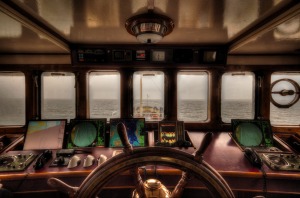
I recently saw again the film The Shawshank Redemption (1994), after not having seen it for a few years. It’s always interesting to revisit certain classics (book, film, or work of art) as the years go by, and observe how your perceptions change. I had a chance to read a little bit more about how the director, Frank Darabont, got the film made, and how it was not an immediate success.
It is now recognized as one of the best–if not the best–American film of the 1990s, and it frequently appears on critics’ lists of the best films ever made. But this verdict was not instantaneous. In fact, one might say that in the beginning the film was a disappointment at the box office. I remember it clearly when it came out, and how tepid the initial public reception was. It was not what people were prepared for. It was a serious film, with serious ideas.
This is often the case with classic books and films. Their resonance and power take some distance to appreciate. But over time, the good things generally make themselves known. I was impressed with how Darabont pursued his project with single-minded determination, out of love for the subject matter, and a desire to make his voice heard.
Another thing that struck me about the film was how powerful an expression it was of existentialist philosophy. I had not thought much of it before. In this I was probably much like other viewers. Most early audiences went in expecting to see a routine prison drama, and were unprepared for a profound and moving cinematic experience that touched on themes of loss, life, and hope.
What is existentialism? It is a school of philosophy that emphasizes (to summarize crudely) the primacy of the individual. Dostoevsky, Nietzsche, and Sartre are commonly held to be exponents of this view. The individual, they believed, was the primary determiner of his fate. Man, they asserted, has the power of choice, the power to do what he needs to do in order to change his environment and himself. It is we who give the world meaning, not abstractions in space or imaginary gods in the clouds.
Freedom brings responsibility with it, and each man must do what is necessary to get on in the world. As the two main characters of the film note at different times, one must “Get busy living, or get busy dying.”
This is sage advice. I don’t know if I would call myself an existentialist, but certainly believing in some of these doctrines is a good thing. How could this not be so? Should we not believe that we are the captains of our own ships, piloting our own destinies? And what would the alternative be? Would it not be a debilitating, consuming fatalism, that negates the individual will, and siphons away critical energies in the all-consuming struggle of life?
The same philosophical ground was covered in the harrowing 2008 British film Hunger. Directed by Steve McQueen, it forces us to ask: What is the moral extent of a man’s control over his life? Is suicide ever a legitimate option? If so, when? And can a man use his body as a weapon?
Hunger tells the story of the 1981 hunger strike of Bobby Sands, a young man who, under normal circumstances, might have just been another normal man. He died in a hunger strike in HM Maze Prison in 1981.
He grew up during a turbulent and violent era of Irish history, and these external circumstances would determine the course of his life. He was radicalized as a youth, after having endured humiliation, violence, and ostracism from people and institutions that were in a position to exercise power over him. But this is the tragedy of war and conflict: the realization that even normal men, caught in the grip of impersonal forces, are forced into extreme situations.
One could not grow up in the greater Boston area in the early 1980s, as this writer did, and not know the name of Bobby Sands. And the issue of hunger-striking was also controversial, at least in some circles. Some thought it was useless. Some thought it was necessary. Everyone had an opinion. But in the end, every man had to make up his own mind. As it always is in life.
Hunger is not an easy film to watch. It is not pleasant to watch a man starve himself to death. But director McQueen (and yes, that is his real name; he is British-born but of Grenadian-Trinidadian heritage) handles the subject matter with precision and unvarnished directness, that never once veers into sentimentality or false bravado.
The film’s greatest, and most famous, scene is a twenty-four minute dialogue between Sands (played by Michael Fassbender) and a priest. It is a masterpiece of sustained tension, completed for the most part in one take. It may be the longest unbroken film take in movie history. In it, Sands explains his rationale for wanting to proceed with a hunger strike. To illustrate his thinking, he draws on an example from his childhood, when he was forced to drown a wounded young foal in Donegal. The experience taught him, he says, that he had the moral strength and willpower to do what he needed to do.
And in a way, one might say that these two films express the same point. The primacy of the individual is affirmed. We are the captains of our own ships. It is we who determine our own fates. Our minds and bodies, in their present form, are the concentrated effects of numberless external causes; but we can also be, if we so will it, the causes of numberless effects on our environment.
Read More: Establishing Boundaries With Others

You must be logged in to post a comment.